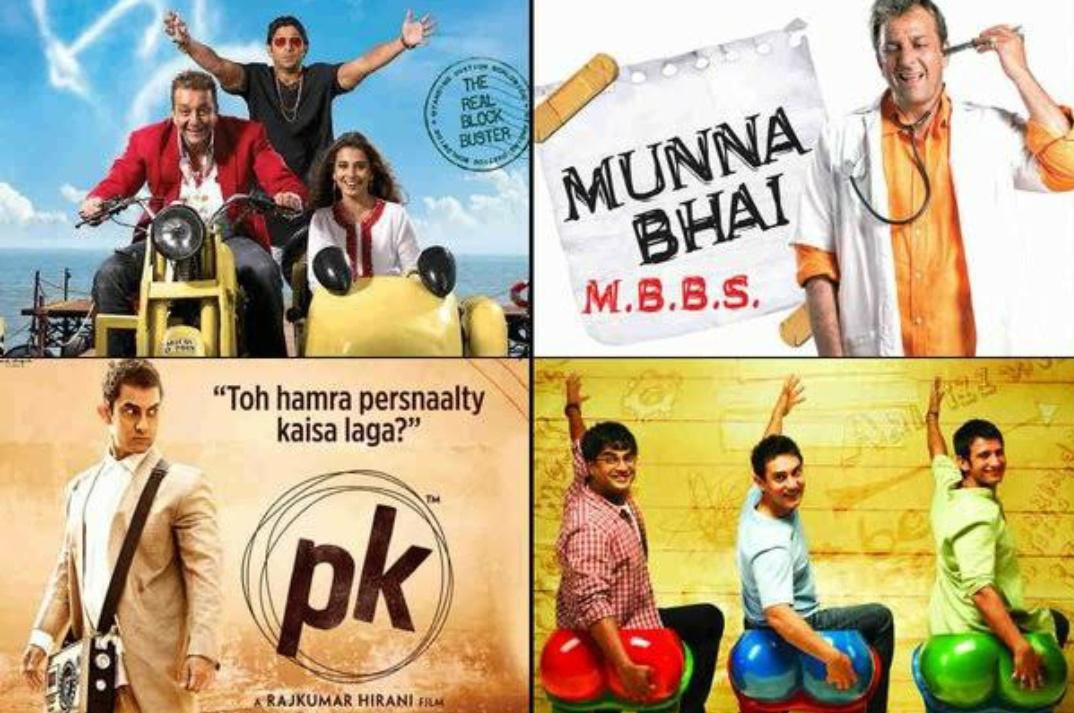Rajkumar Hirani is a name synonymous with cinematic brilliance, heartfelt storytelling, and social commentary that resonates deeply with audiences. Over the years, Hirani has carved a niche for himself in the Indian film industry as a director who seamlessly blends entertainment with thought-provoking narratives, often addressing pressing social issues with wit, empathy, and compassion. In this comprehensive exploration, we embark on a journey through the filmography of Rajkumar Hirani, analyzing his most celebrated works and unraveling the themes that define his cinematic vision.
Early Career and Breakthrough:
Rajkumar Hirani began his career in the world of cinema as a film editor, honing his skills behind the scenes before making his directorial debut with “Munna Bhai M.B.B.S.” in 2003. The film, starring Sanjay Dutt as a lovable gangster with a heart of gold, struck a chord with audiences with its blend of humor, emotion, and social commentary. It introduced audiences to Hirani’s unique storytelling style, characterized by his ability to tackle serious subjects with a light-hearted touch, and set the stage for a series of cinematic triumphs to come.
The Hirani Touch:
Central to Rajkumar Hirani’s cinematic universe is his ability to infuse his narratives with warmth, humor, and empathy, creating films that entertain as they enlighten. Whether exploring themes of friendship and redemption, as in the “Munna Bhai” series, or delving into the complexities of education and societal expectations, as in “3 Idiots” (2009), Hirani’s films are characterized by their universal appeal and their ability to connect with audiences across generations.
Moreover, Hirani’s films are often distinguished by their focus on pressing social issues and their critique of systemic injustices. Whether addressing the flaws in the Indian education system, as in “3 Idiots,” or challenging prevailing attitudes towards mental health, as in “PK” (2014), Hirani uses his platform as a filmmaker to spark important conversations and inspire positive change. Through his narratives, he encourages audiences to question societal norms, challenge conventional wisdom, and embrace empathy and understanding as guiding principles.
Iconic Collaborations and Memorable Performances:
A hallmark of Rajkumar Hirani’s films is his collaboration with some of the most talented actors in the Indian film industry, many of whom have delivered career-defining performances under his direction. From Sanjay Dutt’s endearing portrayal of Munna Bhai to Aamir Khan’s charismatic turn as Rancho in “3 Idiots,” Hirani has a knack for eliciting nuanced and memorable performances from his actors, elevating his films to a level of emotional resonance that is truly remarkable.
Moreover, Hirani’s films are often distinguished by their unforgettable music, with each soundtrack featuring a collection of timeless songs that have become an integral part of Indian popular culture. From the soul-stirring melodies of “Lage Raho Munna Bhai” (2006) to the catchy tunes of “PK,” Hirani’s collaborations with composers like Shantanu Moitra and A.R. Rahman have produced some of the most iconic music in Indian cinema, earning both critical acclaim and commercial success.
Criticism and Controversy:
Despite his widespread acclaim, Rajkumar Hirani has not been immune to criticism and controversy. His films have often faced backlash from certain quarters for their portrayal of sensitive subjects or their interpretation of historical events. “PK,” in particular, faced criticism from some religious groups for its depiction of religious beliefs and practices. However, Hirani has always stood by his artistic vision and defended his films as works of fiction that seek to promote tolerance, understanding, and empathy.
Legacy and Impact:
As Rajkumar Hirani continues to captivate audiences with his heartfelt stories and thought-provoking narratives, his influence on the Indian film industry and the broader cultural landscape remains undeniable. Through his ability to blend entertainment with social commentary, Hirani has redefined the possibilities of mainstream cinema and inspired a new generation of filmmakers to use their craft as a tool for positive change. As we continue to marvel at the brilliance of his films and the depth of his storytelling, we are reminded of the transformative power of cinema to touch hearts, provoke thought, and inspire action.
In conclusion, Rajkumar Hirani’s films stand as a testament to the power of storytelling to entertain, enlighten, and inspire. With his ability to blend humor, emotion, and social commentary, Hirani has carved a unique niche for himself in the Indian film industry and earned his place among the pantheon of cinematic legends. As we celebrate his cinematic legacy and eagerly await his next masterpiece, we are reminded of the enduring impact of his films and the timeless truths they continue to impart.
